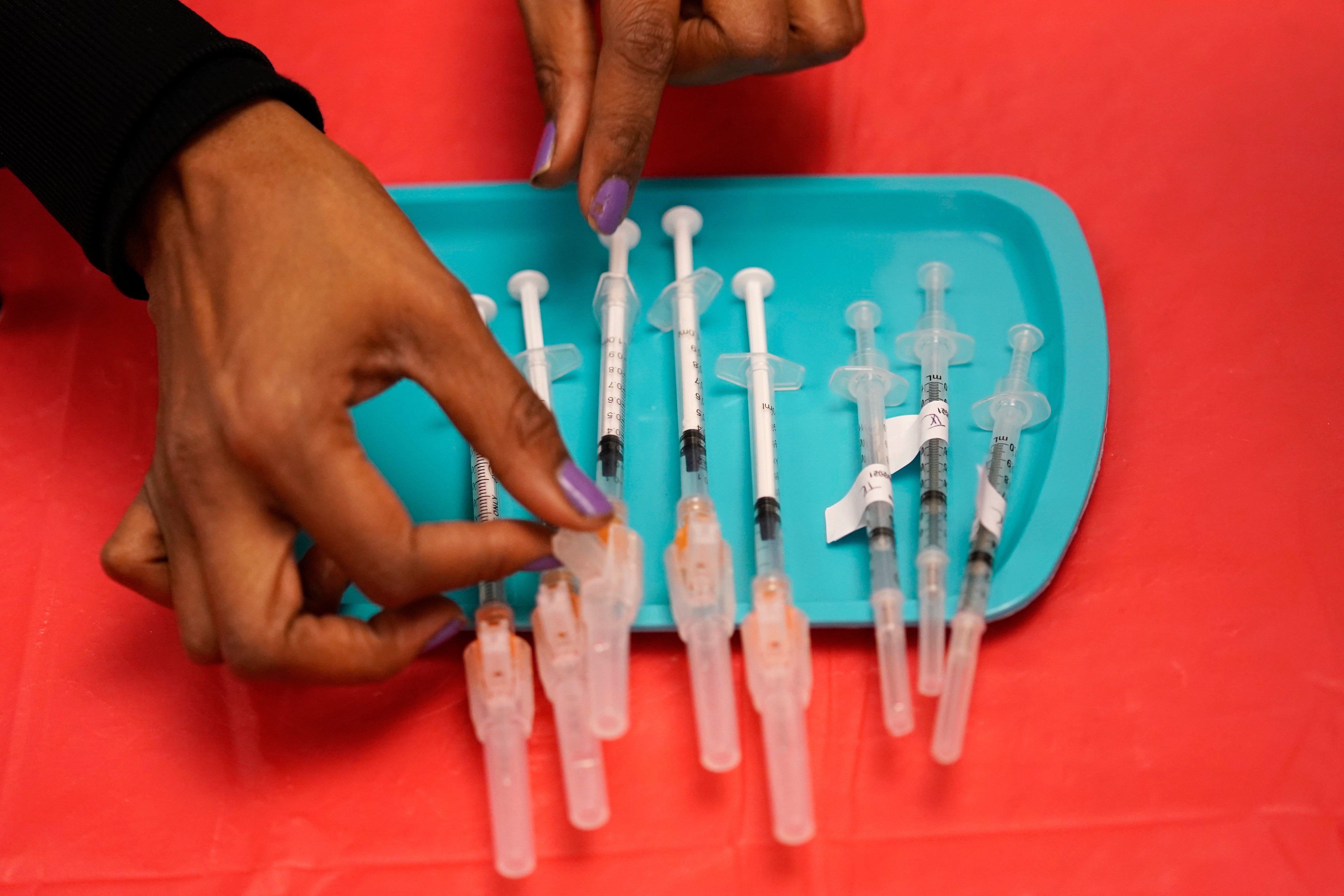Most unvaccinated Americans don’t take personal responsibility for Covid surge, poll shows
A new poll found stark divides between vaccinated and unvaccinated Americans over who is to blame for the ongoing coronavirus third wave

Only one in 10 unvaccinated Americans is willing to accept significant responsibility for this summer’s Covid surge, polling has found.
In a telephone survey by the Kaiser Family Foundation this month, just 12 per cent of unvaccinated adults chose ‘too many people refusing the vaccine’ as a “major reason” for the USA’s ongoing third wave, lower than any other factor.
That was compared to 77 per cent of vaccinated adults and 58 per cent of all adults, who named vaccine refusal as one of the top three causes alongside the highly infectious Delta variant and people failing to take precautions such as masks and social distancing.
Instead, unvaccinated adults primarily blamed the vaccines themselves for not being as effective as promised, while 40 per cent blamed “immigrants and tourists” bringing Covid into the US and 37 per cent blamed a failure to take precautions.
The poll exemplifies America’s stark partisan divide on how to fight the Covid-19 pandemic, with Democrats and Republicans differing sharply on its causes and solutions.
However, it also offers a ray of hope in the 72 per cent of US adults who now say they are at least partially vaccinated, up from 62 per cent in May. Uptake was roughly the same among white, Black and Hispanic respondents.
58%
of US adults blame vaccine refusal for the Covid surge
Six in 10 adults also agreed that hospitals and healthcare providers should require their workers to get vaccinated, while 58 per cent backed similar mandates for high school staff and 55 per cent backed them for university students.
The researchers said recent vaccinations had been driven primarily by surging cases, hospitalisations and deaths due to Delta, with vaccine mandates and the US Food and Drug Administration’s full approval of the Pfizer shot playing a “more minor role”.
However, they added: “Partisanship and vaccination status continue to loom large as factors in how the public views both the US vaccination effort and the government’s response to the pandemic in general...
“Large gaps in vaccine uptake remain by partisanship, education level, age, and health insurance status.”
Cause | All US adults | Unvaccinated |
|---|---|---|
People not taking enough precautions like wearing masks and social distancing | 62% | 37% |
Too many people refusing to get the Covid-19 vaccine | 58% | 12% |
Delta variant is more infectious | 58% | 35% |
Local and state governments lifted restrictions too soon | 50% | 27% |
Immigrants and tourists are bringing Covid-19 into the US | 40% | |
Vaccines are not as effective at preventing spread as scientists thought | 32% | 58% |
Children not eligible for vaccination are spreading Covid-19 | 29% | 15% |
The most vaccinated groups were Democrats (90 per cent), people over 65 (85 per cent), university graduates (82 per cent) and those with income over $90,000 per year (79 per cent). The least vaccinated groups were uninsured people under 65 (54 per cent), Republicans (58 per cent) and rural residents (62 per cent).
Women were five points more likely than men to have been vaccinated, while those without a university degree were 15 points less likely to be vaccinated than those with one.
Although only a third of unvaccinated people said that they would be likely to get a Covid shot if it was required by their employer, more than half said they would submit to weekly testing if it was offered as an alternative.
Among all respondents, eight in 10 expected Covid-19 to become a regular disease that we live with, similar to seasonal flu. Only 14 per cent expected it to be eliminated.
Subscribe to Independent Premium to bookmark this article
Want to bookmark your favourite articles and stories to read or reference later? Start your Independent Premium subscription today.

Join our commenting forum
Join thought-provoking conversations, follow other Independent readers and see their replies